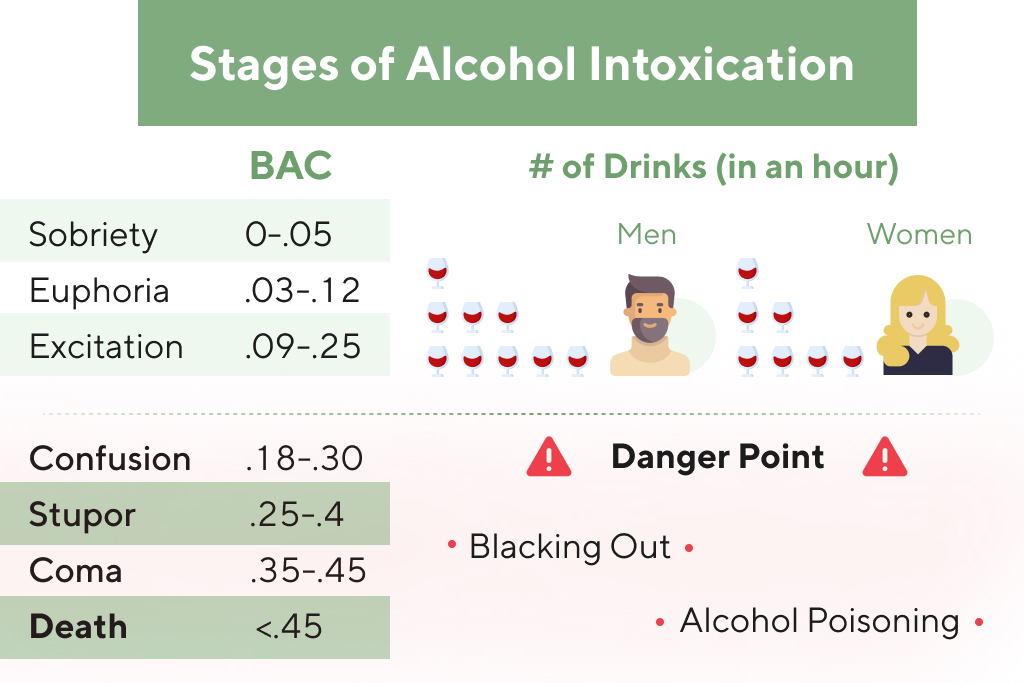Thus, the contributions of environmental and genetic variability would not be independent of each other. With the exception of the two outlier studies, in the remaining studies, nonshared environmental influences account for at least 30 percent of the variation in alcoholism risk. The liability model provides a natural framework for combining data from different studies using widely different definitions of alcoholism.
- A healthcare professional can provide an accurate diagnosis, recommend the most suitable treatment plan, and monitor progress, ultimately offering a path toward recovery and improved quality of life.
- Twin studies have been an instrumental tool in understanding the role of genetics in the risk of alcohol addiction.
- Drinking will trigger their brain’s reward and motivation centers more strongly than it would for the average person.
- Genes may interact with specific toxic environments, such as abuse or neglect, to result in problems for some gene carriers but not for others.
- By leveraging genetic testing, education, and making necessary modifications to their lifestyle, individuals can lead healthier lives and manage the impact of their genetic predisposition to alcoholism.
Phenotypes/ traits to study AUD

Therefore, only genes are not responsible for deciding whether someone will develop AUD or not. is alcoholism a genetic disease Besides, environmental factors, as well as gene and environment interactions account for the remainder of the risk. Studies suggest that genetic factors account for percent of a person’s risk for AUD. Growing up in a household where alcohol use is normalized or where there is a high presence of alcohol misuse increases the likelihood of developing alcohol problems. Other environmental factors that play a role include early life experiences (e.g., trauma, abuse), cultural and societal influences, life stressors, and access to alcohol.

The Link Between Genetics and Alcoholism – Understanding the Role of Genes in Alcohol Addiction
Genetic disorders are diagnosable conditions directly caused by genetic mutations that are inherited or occur later in life from environmental exposure. If https://ecosoberhouse.com/ you or a loved one is impacted by alcoholism, you may be wondering, “is alcoholism hereditary or learned? Alcoholism, also called alcohol use disorder, is a disease that impacts 1 out of every 12 Americans. Science continues to explore the causes of alcohol dependence and the best treatments for it. Genetic testing is already providing opportunities for self-assessment that were impossible in the past, and the demand for genetic profiling will increase in the coming years. This use of scientific knowledge is surely inevitable, especially in free nations with capitalist economies, where it will be market-driven and competitive.

Does Everyone with Alcoholic Parents Develop AUD?
- While it is known that there is a strong genetic component to the disease, the specific inheritance patterns are still not fully understood.
- Endorphins, or lack thereof, may also predispose someone to alcoholism, Medical News Today reports.
- Certain genetic variations may increase a person’s susceptibility to the negative effects of their environment, making them more likely to develop an addiction.
- Research has illuminated that genetics is a significant factor in the risk of developing Alcohol Use Disorder (AUD), but it’s not the only one.
A series of functional genomics studies examine the specific cellular and molecular mechanisms underlying AUD. In addition to affecting alcohol addiction risks, these genetic factors may lead to increased alcohol consumption and heighten the risk of alcohol-related diseases, including certain cancers. In fact,new data suggeststhat there may be even more genetic variants involved in alcohol dependence. Research suggests that genes can influence a person’s risk of developing an addiction to alcohol. Certain genetic variations can make individuals more susceptible to developing alcohol dependence.
How Do Genes Affect the Brain and Addiction?
Research exploring the complex interplay between genetics, environment, and behavior is ongoing and will continue to provide valuable insights into the underlying mechanisms of alcohol addiction. Ultimately, a comprehensive understanding of the genetic factors contributing to alcoholism will help improve prevention efforts and treatment outcomes for individuals Sober living house struggling with this devastating disorder. Studies have shown that individuals with a family history of alcoholism are more likely to develop an addiction themselves. This suggests that there is a genetic component that contributes to the risk of alcoholism. Researchers have identified specific genes that may contribute to the risk of alcoholism. These genes are involved in various biological processes, such as the metabolism of alcohol and the regulation of dopamine levels in the brain.